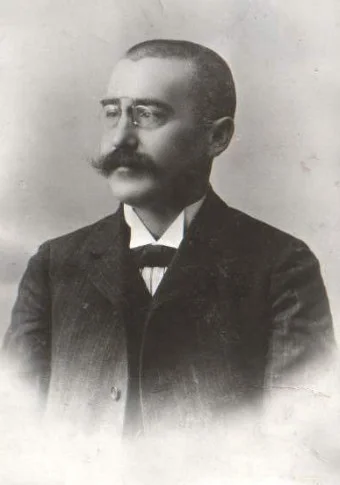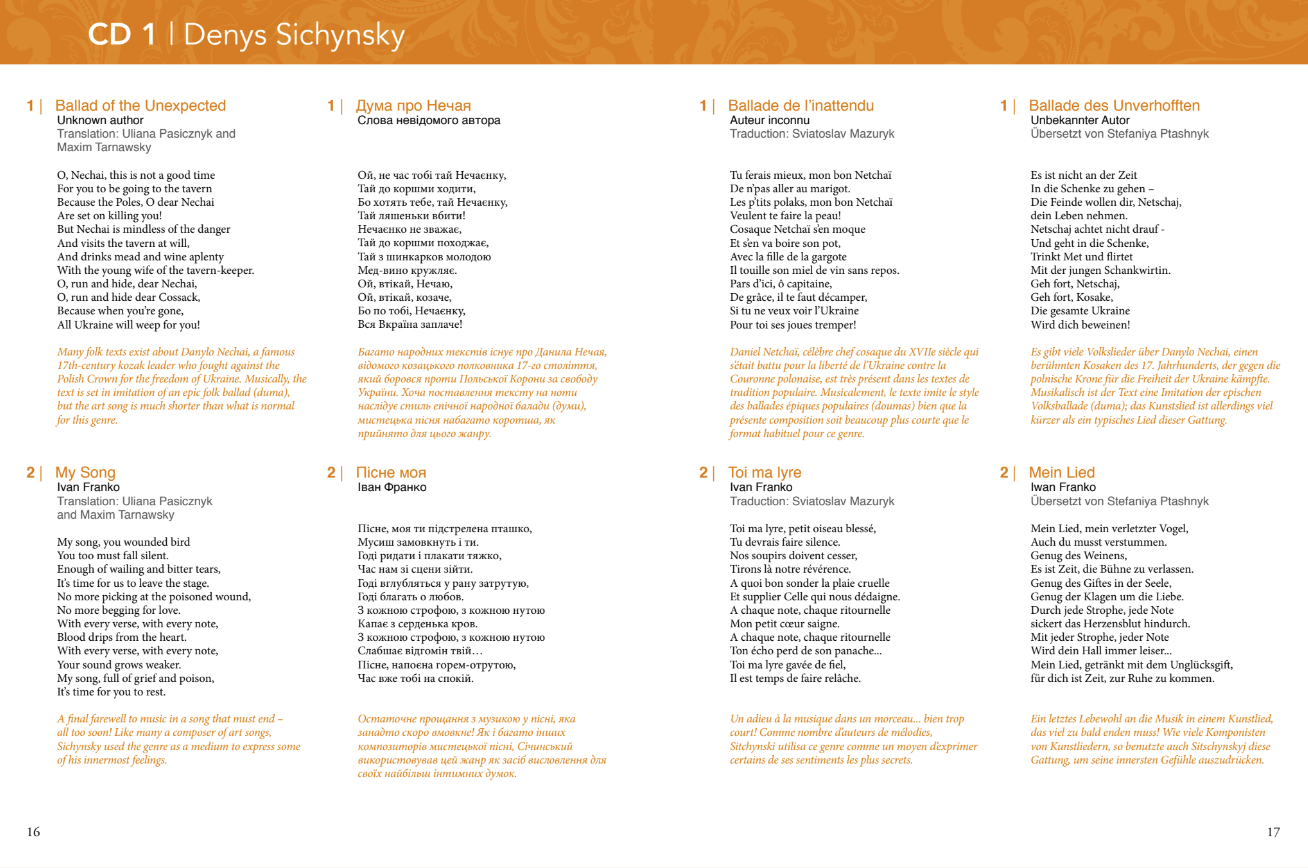Click on the title of each song to download the linked zip file which includes both pdf and .sib. If you wish to use the .sib files in the web browser you will have to have installed and turned on the current version of Scorch for the web. You can download it here Sibelius First. All links to the Scorch web plug-in and the Scorch iPad app are also available at the bottom of each composers section. Click the appropriate button and follow the instructions to download and install the version of scorch you would like to use.
All songs are free to download and perform, so kindly consider making a donation of $5, $20, $50 or whatever you can, to support and sustain this archive.
Thank you
Denys Sichynsky (1865-1909)
In his youth, Denys Sichynsky also studied with pianist Władysław Wszelaczyński in Ternopil, himself a pupil of Mikuli. Even before his private studies with Mikuli, Sichynsky had already started to write art songs. During the 1890s, Sichynsky led an unsettled life. He worked as a music teacher, copyist, arranger, conductor, performer, organizer, critic, and composer. It is from this period that most of his art songs originate. In 1891, Sichynsky helped found the Lviv “Boian” Choir, and in 1902, he organized a Ukrainian music school in Stanyslaviv (Ivano-Frankivsk) where he settled during the last decade of his life. Stylistically, Sichynsky’s music is mid-late romantic. There is a wonderful sense of melody, reflecting the melos of Ukrainian folk songs. Many of his art songs are through-composed, rich in modulation, and operatic in style.
Meanwhile, in 1899, Mieczysław Sołtys became the director of the Lemberg Conservatory and proceeded to Polonize it. In reaction to this, in 1903, composer and political activist Anatole Vakhnianyn founded the Lysenko Higher Institute of Music in Lviv to provide Ukrainians with a Ukrainian music school. Two of its earliest teachers were Stanyslav Liudkevych and Vasyl Barvinsky. Both the Polish conservatory and the Ukrainian institute existed until World War II when the Soviet regime merged them into one, the Lviv State Conservatory. All the Polish students and teachers were expelled. In 2000, the conservatory was renamed the Lviv State Music Academy and eventually granted national status by President Yushchenko.
SONG LISt






